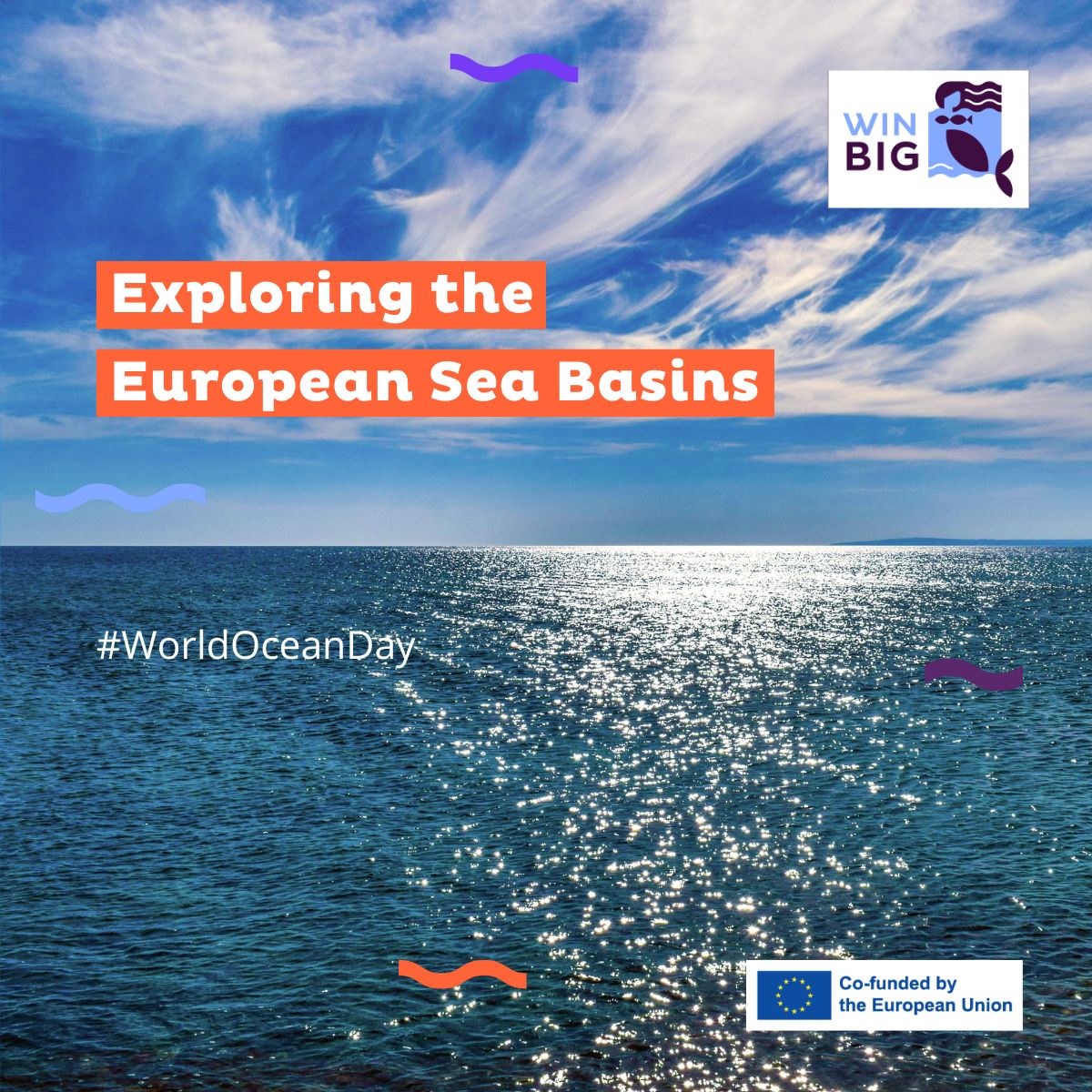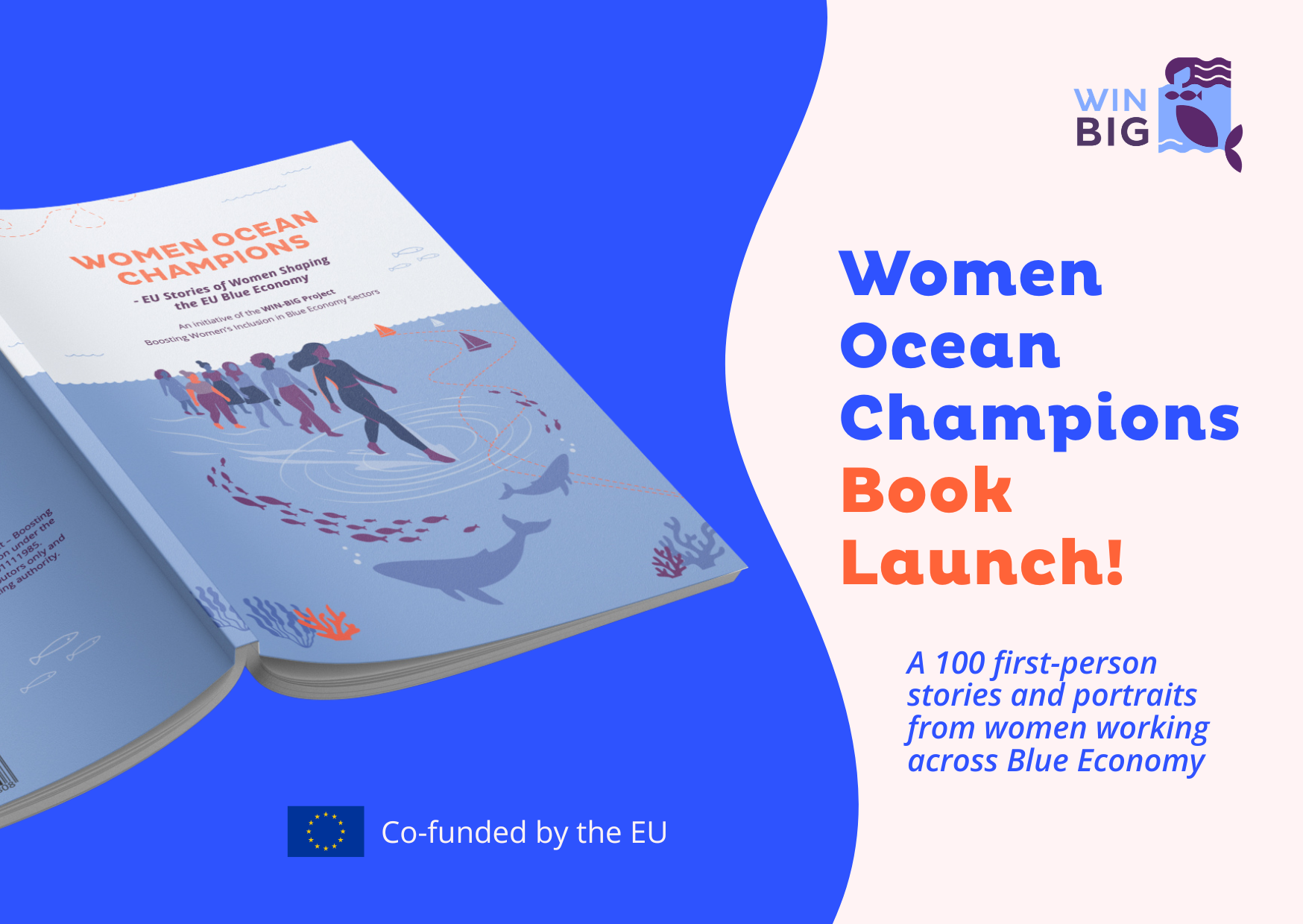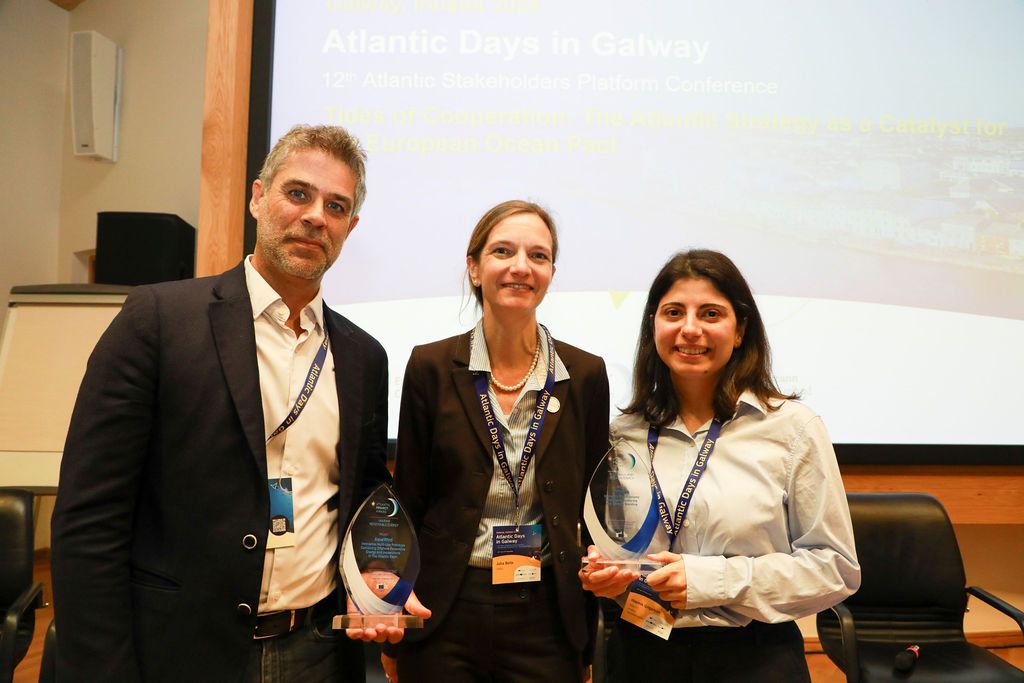Celebrating World Ocean Day with WIN-BIG: Exploring Europe's Sea Basins

Initiated in 1992 at the Earth Summit in Rio de Janeiro and officially recognized by the United Nations in 2008, World Ocean Day aims to raise awareness about the ocean's critical role in our lives and the pressing need to safeguard its health for future generations. This day is an opportunity to celebrate the beauty and wealth of the ocean while also addressing its challenges, from pollution and overfishing to climate change.
This World Ocean Day, join WIN-BIG as we embark on a journey through the six European sea basins, highlighting their unique contributions to the blue economy and the vital role of women in these sectors.
Atlantic Ocean
The Atlantic Ocean is a hub of diverse blue economy activities, covering a vast area and diverse ecosystems. The second-largest ocean in the world, its ecosystems are split into the Celtic Seas, Bay of Biscay, and Iberian Coast. Home to marine life, such as humpback whales and basking sharks, it supports key sectors like fisheries, tourism, and shipping. Its physical and climatic conditions are ideal for offshore renewable energy development. Since 2022, offshore wind development has accelerated, with several wind farms operational and new projects underway in Ireland, France, Spain, and Portugal.
Discover more here.
Mediterranean Sea
The Mediterranean Sea is the largest enclosed sea in the world, touching 46,000 km of coastline across 25 countries and territories. Known for its stunning biodiversity and rich cultural heritage, it hosts over 17,000 identified species and the deepest point, Calypso Deep, reaching about 17,280 feet. Key sectors include fisheries and aquaculture, tourism, and renewable energy. However, human activities cause significant environmental pressures, such as overfishing, biodiversity loss, and contamination. Coastal countries are working together to address these transboundary challenges like submarine natural gas and oil exploitation, environmental conservation, and sustainable fishery management.
Discover more here.
Baltic Sea
The Baltic Sea is one of the largest brackish water bodies in the world. Known for its amber or "Baltic Gold," it supports sectors such as shipbuilding, maritime transport, and offshore wind energy. The Baltic Sea's favourable conditions make it a crucial hub for offshore wind energy, and despite its unique brackish environment, innovation in maritime transport and shipbuilding continues to thrive. Women are increasingly contributing to the Baltic Sea's blue economy, participating in maritime sectors, leading innovative projects, and advocating for sustainable use of marine resources.
Discover more here.
North Sea
The North Sea is known for its unique tidal system, influencing coastal landscapes and supporting a rich marine life, including seals, porpoises, and a variety of fish species. Key sectors include offshore energy, shipping and ports, and the seafood industry. Indeed, the potential for offshore wind energy in this region is immense, with numerous wind farms already operational. Its bustling ports and shipping routes are vital for European trade, and sustainable practices in the seafood industry are increasingly prioritised.
Discover more here.
Arctic Ocean
The Arctic Ocean, the smallest and shallowest of the world's oceans, plays a crucial role in global climate regulation. It is home to the mesmerizing Northern Lights and indigenous communities that depend on traditional practices for sustenance. Key sectors include Arctic fisheries, oil and gas exploration, and research and science. Sustainable fisheries practices and careful management of oil and gas exploration are essential to preserving this unique environment. Research and science are pivotal in understanding and protecting the Arctic ecosystem.
Discover more here.
Black Sea
The Black Sea, connected to the Mediterranean through the Bosporus Strait, is rich in cultural history with ancient civilisations thriving along its shores. Home to unique species like the Black Sea bottlenose dolphin, it supports sectors such as shipping and trade, fisheries, and tourism. Collaboration among coastal countries in the region is essential to address current environmental challenges and protect the region's biodiversity.
Discover more here.
This World Ocean Day, join us in celebrating the beauty and wealth of Europe's sea basins and the incredible contributions of women in the blue economy. By working together, we can ensure a sustainable and inclusive future for our oceans and the communities that depend on them.
Follow WIN-BIG on our social media channels LinkedIn, X, Instagram to stay up to date with our latest activities!



